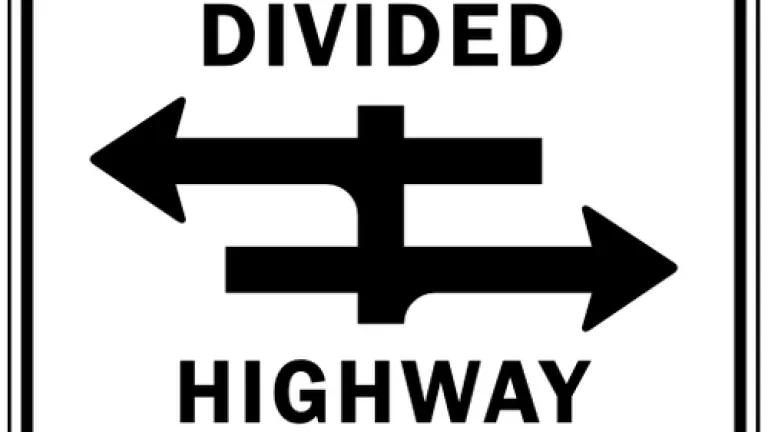
It's only Tuesday and already it's another disappointing week for transportation law. The House GOP has shelved its 90-day extension due to - surprise! - inability to get the votes to pass it. A 60-day extension is in the offing now, with the vote slated for who knows when; they just pulled it back at the last minute, most likely due again to lack of votes.
Dearth of support for an extension may be due to burgeoning support for the bipartisan Senate bill, and a commonsense observation by streetsblog that every extension eats away at it. MAP-21 was cobbled together as a two-year bill in order to make ends meet without 1) substantial cuts or 2) generating more revenue through user fees (the federal gas tax hasn't increased in 20 years). Interest in the Senate bill is growing, with a few brave Republicans breaking ranks openly yesterday by signing onto a letter favoring the Senate bill.
But extensions inevitably whittle it away, defeating one of its main purposes: Providing a degree of investment certainty for transportation agencies and contractors making plans for construction. Planning for spring construction season is all but passed now. In fact, it's already started due to unusually warm temperatures.
Sadly I suspect that the Leadership's difficulty springs moreso from those they cater to relentlessly: the right flank of the GOP caucus. And this minority group is, I'm sure, taking its cue in turn from right-wing lobby groups including from harsh if mealy-mouthed statements like this one from Heritage Action. By their lights, the only good transportation bill seems to be one that dismantles the federal program, either entirely or nearly so.
These divisions are unfortunate because for a change there's a clear path to enactment if the right-fringe hurdle is cleared. MAP-21 first passed the Senate by a whopping bipartisan 52-vote margin (74 yeas, 22 nays). Now the President is urging the House to pass it, including in his weekly radio address. If it hits his desk, he would clearly sign it, it would become law and we avoid what Brad Plumer has termed "transportation armageddon. Transportation agencies would then pull back from cancelling projects in jeopardy due to unpredictable funding.
Last week the Treasury Department added to the pile of evidence that now is the time to invest in transportation, issuing a report that concluded among other things that:
- America is losing ground in the quality of transportation infrastructure, something that is likely to hamstring economic development moving forward (hard to run a successful business if goods delivery or employee commutes are a problem);
- Due to low labor utilization (unemployment in construction has been at 13 percent over the past year) and construction costs (e.g., for materials) we get big bang for every buck invested; and
- the middle class benefits mightily since we account for 90 percent of construction jobs and take the hit due to traffic congestion (1.9 billion billion gallons of gasoline and $100 billion in wasted fuel and time annually).
In short: The House must act, and act now.
Reaching across the aisle is a must on this -- and other -- issues. A house divided against itself cannot stand, Jesus says in Mark 3:24, a passage which also resonated through a speech by Lincoln about the national divide over slavery. It's no less true of this particular House of Representatives.
Time for the House to stand up by working to pass the balanced, bipartisan Senate transportation bill. Tell them to get to work by clicking here.